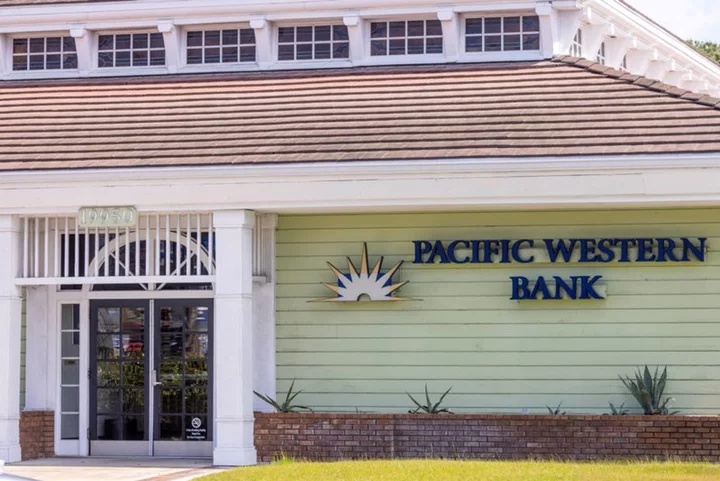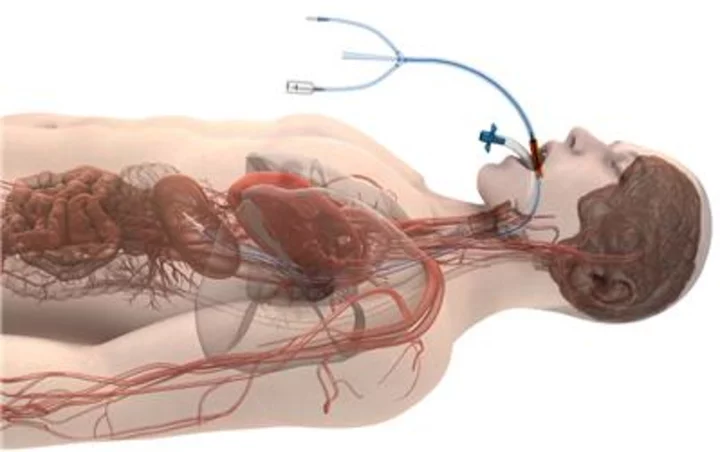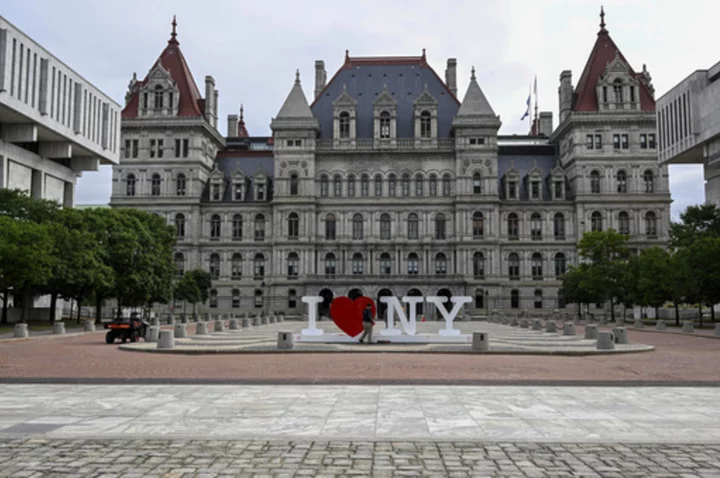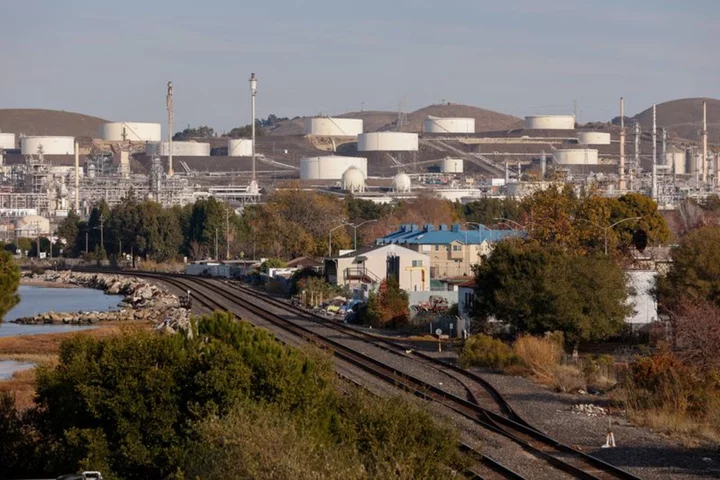By Niket Nishant and Chibuike Oguh
(Reuters) -Shares of PacWest Bancorp plunged 23% on Thursday after the Los-Angeles-based lender said its deposits declined and that it had posted more collateral to the U.S. Federal Reserve to boost its liquidity.
PacWest deposits fell 9.5% or $1.5 billion last week, with the majority of those outflows occurring on May 4 and May 5 following news reports that the bank was exploring options to bolster its finances, including a sale.
PacWest is one of several U.S. regional lenders whose shares have been hit this month by investor concerns over the health of the sector following the collapse of three banks since March.
"The news headlines increased our customers' fears of the safety of their deposits," the bank said.
Shares of PacWest and other regional lenders fell sharply on Thursday after the Federal Deposit Insurance Corporation said that around 113 of the country's largest lenders will bear the cost of replenishing the $16 billion hit to its deposit insurance fund caused by recent bank failures.
A new "special assessment" fee of 0.125% would be applied to the uninsured deposits of banks in excess of $5 billion, based on the amount of uninsured deposits a bank held at the end of 2022, the FDIC said.
KeyCorp and Zions Bancorp shed 2.5% and 4.5%, respectively. Valley National Bancorp fell 2.8% and Comerica Inc lost 6.8%. The KBW Regional Banking Index dropped 2.4%.
PacWest said it had funded the shortfall in its deposits with cash from its balance sheet and then pledged $5.1 billion of its assets to the Fed to secure additional liquidity of $3.9 billion.
As a result, the bank said it had $15 billion of immediate liquidity, which is 288% higher than its $5.2 billion of total uninsured deposits.
"The deposit fall seems to have overshadowed things but overall it was a positive update," said Wells Fargo analyst Jared Shaw, who has assigned an "equal weight" to PacWest shares. "It showed that they had liquidity and that they were still able to sell their loans."
PacWest shares, which have lost nearly 40% so far this month and plunged to a record low last week, dropped a further 23% on Thursday. Short sellers have made $123.76 million by betting against PacWest, according to data from analytics firm Ortex.
Western Alliance, meanwhile, reported that its total deposits rose by nearly $600 million to $49.4 billion and that its immediate liquidity was almost double its uninsured deposits. The bank's shares, which also slumped last week on investor worries over its health, lost 0.77%.
"It feels as if things are more stable at Western Alliance and they have been able to deal with the challenges," Shaw said.
A PacWest spokesperson did not immediately respond to a request for comment, while Western Alliance declined to comment.
BE PREPARED
JPMorgan Chase & CO CEO Jamie Dimon said on Thursday that regional banks are "quite strong" after reporting good earnings, and that the industry and regulators should "just be prepared for problems."
Dimon said he anticipated more bank regulation stemming from the crisis, adding that authorities, including the U.S. Securities and Exchange Commission (SEC), should investigate short selling on bank stocks and potential collusion via social media posts. JPMorgan had agreed last week to acquire First Republic Bank in a $10.6 billion deal engineered by regulators.
A study by New York Fed researchers also released on Thursday showed that shuffling of bank deposits following the collapse of Silicon Valley Bank, which triggered concerns about a broader crisis, was largely confined to "super regional" institutions in the $50 billion to $250 billion range.
Deposits among "community and smaller regional banks ... were relatively stable by comparison," the researchers found, with the largest banks receiving inflows as money left the super-regional group.
(Reporting by Niket Nishant in Bengaluru and Chibuike Oguh in New YorkAdditional reporting by Shristi A Achar and Noor Zainab Hussain in BengaluruEditing by Andrea Ricci and Matthew Lewis)









